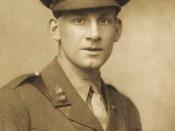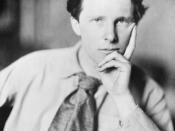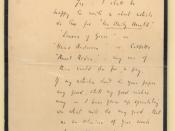War is a topic that brings forth many emotions and has thus been the focus of many poets' works. You would think that war and its devastating effects would invoke very similar responses and portrayals, but this is evidently not the case when looking at poetry by Siegfried Sassoon and Rupert Brooke side by side. Once you begin to explore their war poetry, you find that it varies considerably, both in the way it is written and the attitudes that it brings forward. Much of this variation becomes clearer and more understandable when you delve into the different experiences of the poets.
The huge contrast between Brooke and Sassoon's attitudes towards war is largely due to the fact that Brooke actually saw very little combat during the war. In 1915, when he was only 28, he contracted blood poisoning from a small injury and died. His experience of war could be considered sheltered and surreal, resulting in poems that are patriotic and great advertisements for those trying to get young men to enlist in the war.
They promote dying for your country but fail to describe the agony of death or the terrible circumstances young soldiers experienced during the war.
Some critics doubt that he would have written with such enthusiasm later in the war had he lived. His poems show a liveliness that most soldiers and poets eventually lost. You can actually see the brutal turn that war poetry seemed to take in the works of poets like Owen, Sassoon and Rosenberg.
How Brooke's poetry would have changed in tone and imagery people can only guess, but Brooke is remembered as a "war poet" who inspired patriotism in the early months of the Great War.
He uses romantic unrealistic language like in his poem "The dead", which celebrates the...



War Essays.
I'm writing an essay on world war one and it seems to me Wilfred Owen would be more interesting to compaire to Sassoon, none the less this helped me alot on my essay. Thanks!
1 out of 1 people found this comment useful.